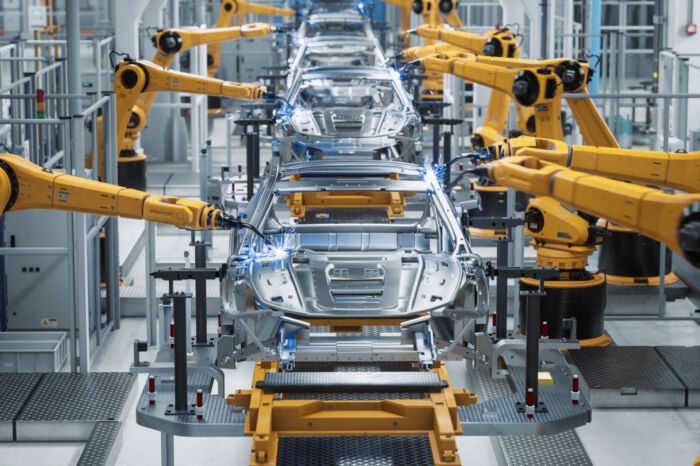This warning came from S&P Global Mobility, which has issued an extensive report on this risk.
The financial performance of companies is experiencing difficult times, which began with the Covid-19 pandemic. The current energy crisis, coupled with the significant increase in the price of all production inputs, may cause car companies to be unable to keep their production lines running.
The report states.
“With energy prices in Europe skyrocketing, placing business bottom lines in triage mode, a harsh winter could place certain automotive sectors at risk of being unable to keep their production lines running.”
We have also seen the concerns of individual car companies. For example, the German carmaker Mercedes announced some time ago that they are stockpiling components that need natural gas for their production.
How many cars would not be produced with a 40% reduction in production?
Preliminary projections are for 4-4.5 million cars to be produced each quarter through the last quarter of 2022 and the end of 2023. However, if the predicted production cutback problems occur, production could fall into the range of 2.75-3 million cars each quarter.
With the global automotive supply chain stretched thin, the looming energy crisis in Europe combined with a cold winter could result in factory shutdowns to the tune of 1 million vehicles lost every quarter from Q4 2022 through the end of 2023.
Read more: https://t.co/PoJu2K4pGM pic.twitter.com/jJ6gJBPMEt— S&P Global Mobility (@SPGMobility) October 11, 2022
Automakers will also have problems in the process operations of production. The much-used and well-established JUST IN TIME production method of ensuring that the production line runs optimally and that materials are delivered to the workplace at the exact time they are needed may not be possible now. In fact, due to expensive operations, many suppliers are opting more for 24/7 production, which is a more energy-efficient operation as they do not have to constantly switch machines on and off. However, they will not run in this mode all the time, but only in weekly modes, for example.
Read also: Massive drop in demand for chips incoming?
We also have to take into account the cost of cars. Before the crisis, gas and electricity prices were not reflected very much in the final price. On average, it was less than €50 per vehicle. Now the cost has increased to between €687 and €773 per vehicle.
The bigger problems may be for automotive suppliers
Edwin Pope, S&P Global Mobility’s principal analyst for materials and lightweight, said.
“If you look through the supply chain – particularly where there’s any metallic structure forming through pressing, welding or extrusion – there’s a tremendous amount of energy involved,”
He went on to mention that the companies in the supply chain could have a bigger problem than the automakers themselves because they need more energy.
“Total energy usage in these companies could be up to one-and-a-half times what we’re seeing in vehicle assembly today. Anecdotally, we’re hearing that some of this manufacturing capacity is becoming so uneconomic that companies are simply shutting up shop.”











Comments
Post has no comment yet.